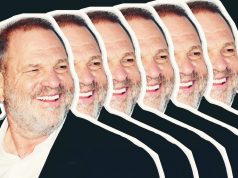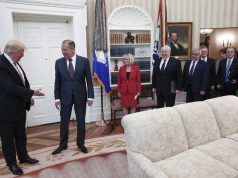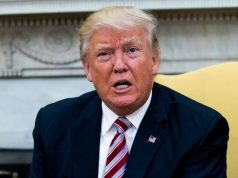Steve Jobs Defied Convention, and Perhaps the Law, says the New York Times. Marquel wags his middle finger at us and adds: Mr. Jobs’s conduct is a reminder that the difference between genius and criminal behavior depends on whose pocket is being lined.
But to say it could be a “fine line” would be a stretch unless you think it’s a fine line between shopping at a 7 11 and robbing it at gunpoint. When the Times says “perhaps” Marquel is baffled. Maybe, just maybe there is one lawyer in the country who doesn’t know it’s a federal felony to agree with competitors not to hire each others employees, and maybe that is the lawyer who Times interviewed. Because especially in California, voluntary agreements by employees not to compete with the employer after leaving him is, at best, frowned upon.
That Apple’s lawyers still insist that these anti poaching agreements were “acceptable, legal, with no anti competitive effect” is fabulous.
Marquel needed to find and talk to that stricken legal eagle. “So,” I said when I found him, “before we get into the legalities…”
“Completely legal,” the legal eagle interrupted.
I paused, “before that, let’s see what actually happened. Steve Jobs was really the ringleader…”
“He was the industry leader,” he interrupted again.
“Yes,” I agreed, “it was he who organized these agreements and enforced them. Basically every silicon valley company agreed not to hire competitors’ workers, including eBay, intuit, apple, palm, amazon, and just about everyone else.”
“But it did no harm,” he added, “and so it was perfectly legal”
“How do you reach that conclusion?” I asked.
Like a blowfish, he puffed himself up to about four times his original size and proceeded to lecture me. “The Sherman act requires an anti competitive effect. Here, these companies competed viciously and created marvelous competitive products.”
“But,” I added, ” these agreements are treated like poison by lawyers because you can’t readily prove how much more competitive things would have been if workers had been freer to change jobs. ”
“That’s just speculation,” he argued.
“But isn’t speculation appropriate here?” I asked, “once you have these illegal agreements, they are presumed to have anticompetitive effects, so you can’t just say it’s speculative when it’s presumptively harmful.”
“That, too, is speculative.” He said, making me afraid he would explode if he blew himself up any larger. His response stymied me. But lawyers do that, especially when you catch them in a mistake.
“Let me ask you,” I suggested, “whether you have forgotten something…”
“Forgot nothing. Nothing at all,” he interrupted once more.
“Well,” I continued, “your only considering the anticompetitive effects among the companies. What about the workers? They compete, also, for jobs and skill improvement and your agreements killed that competition completely. Aren’t you too enterprise-oriented and not at all labor-oriented?”
“That sounds like crybaby nonsense,” he insisted.
“Is that a legal doctrine” I asked. He was silent.
“Tell me,” I said, “if you can, why Jobs was so seemingly obsessed by these agreements.” “He used them for everything. It was his life.” He said.
“In what way?” I asked.
“Well,” he said, “there was an orange Julius he loved down south near San Onofre that he thought was terrific so to keep the workers there he had all the apple lawyers canvas the area for fifty miles getting all the competitors to agree they wouldn’t hire others’ workers.”
“He did that for an orange Julius?” I said, shocked.
“Same with the newspaper delivery. He liked the boy so he got all the deliverers to agree not to hire him away.” He explained. “He kept us busy.”
“Anything else?” I asked.
“I told you he did it with everything. His barber. The guy who fixed his cars. His doctors. Even his family.” He said, deflating somewhat.
I was starting to feel more comfortable yet more angry. “Let’s go through this,” I suggested. “He, or you lawyers, went to all the hair salons in silicon valley to make sure his favorite barber didn’t get hired away?” He nodded. “And the same with his mechanic?” He nodded again. “And what about his doctors?”
“Once he got cancer,” he said, “he wanted to keep his oncologist on hand so he had us get agreements with all the cancer hospitals in the country, several foreign ones, and the Nobel Prize committee. No one could touch that doctor.”
“The Nobel prize?” I asked. “He kept the doctor from getting the Nobel prize?”
“Steve was afraid it would take him away from his office for too long. Just when he might need him.” Said my now completely deflated legal pigeon.
“His family? What’s that all about?” I asked.
“Steve was afraid his wife might wander when he was so sick so we had to get no poaching agreements from every bigwig single male in the valley. And quite a few married ones as well. He also had his kids sign agreements that they wouldn’t poach friends, just to keep peace in the family.” He elaborated.
“His kids couldn’t share or change friends?” I asked.
“Well remember these are anti poaching agreements. It was the friends who signed them promising not to take a friend from another. We had to get all the kids in the second grade to sign. That was tough.” He complained.
“I can imagine.” I said. I’d heard enough. Jobs wasn’t just clearly a felon, he was also a neurotic psychopath. I wondered how much cheaper iphones would have been without Apple’s felonies. “What about you? Why are you still defending apple?
“Oh I have to,” he said. “We lawyers had to get anti poaching agreements from all the firms across the country, on our own time. To keep our jobs. And they have no time limit. So I’m here for life” “So that was a mistake?” I asked. . “No,” he said, “the big mistake was to get agreements regarding my wife.”
“You did that?” I asked.
“Right after Steve did it with his. I stupidly thought if it was good for him it’d be good for me. I forgot he was dying. Now I can’t get a divorce and nobody will tempt my wife away for fear of violating their agreements.” He said, sounding less than perky for the first time.
I said good by and started thinking where I could use these agreements. It doesn’t seem likely that Huffington Post is going to be calling soon. Nor the Nobel Committee. But it would be nice to tie the hands of my kids to keep peace in the house. I thought I might make an appointment with my lawyer. Unless, gasp, he’s moved on.
***
For more Times corrections go to @MarquelatTPV.
TPVs CORRESPONDENT
Steve Jobs Defied Convention, and Broke the Law. Perhaps. Not.![]()














Amazing! Pure Marquel
Ditto
I love it.
…but you have to give it to Jobs. He had balls.
Or the people to whom he promised money had them
Hey, little Dick. Jobs delivered. He made billions for himself and his posse.
Why are you so nasty so early in the morning?
Sorry…Sorry, that was out of line..
No worries. you Apple lover.
Ha. touche
Wonderful article. I love the punishment the legal eagle got “what’s good for Steve is good for me.” NOT
Marvelous piece. So true. So true. But I feel very conflicted. Innovation requires bending the law.
the eternal Jobs story…very well written.